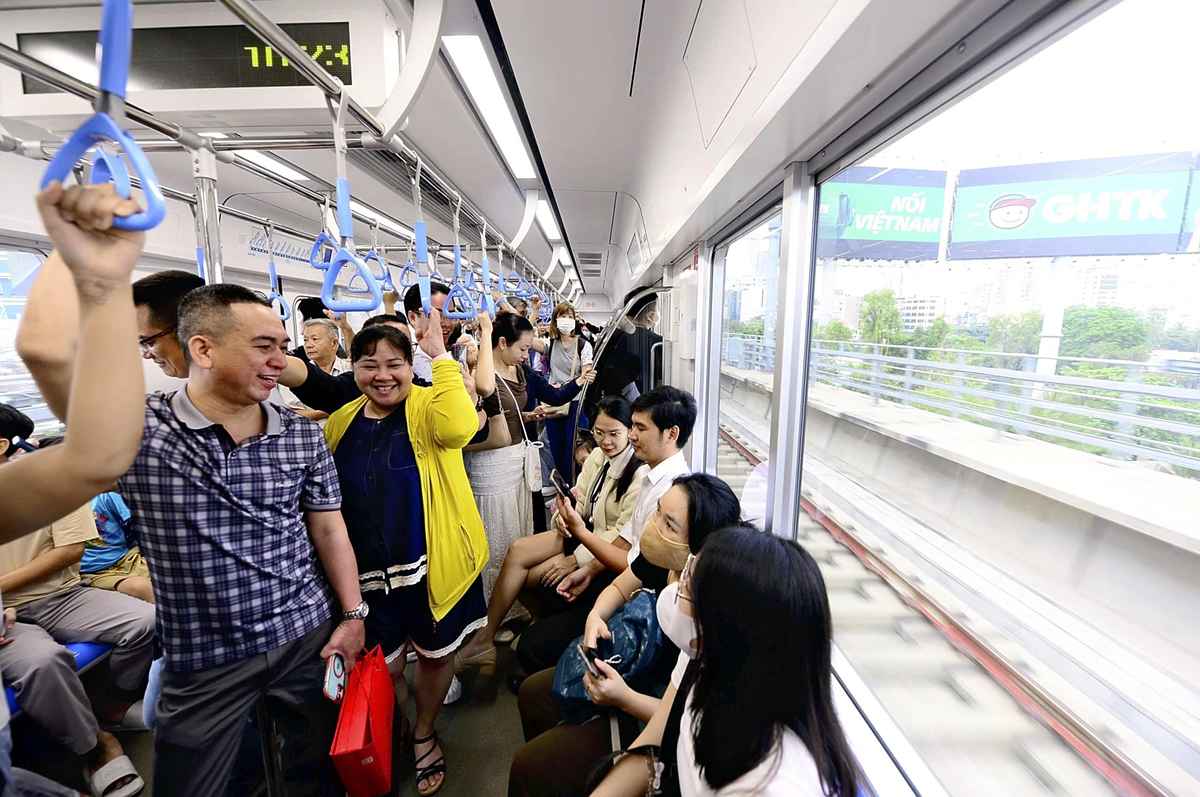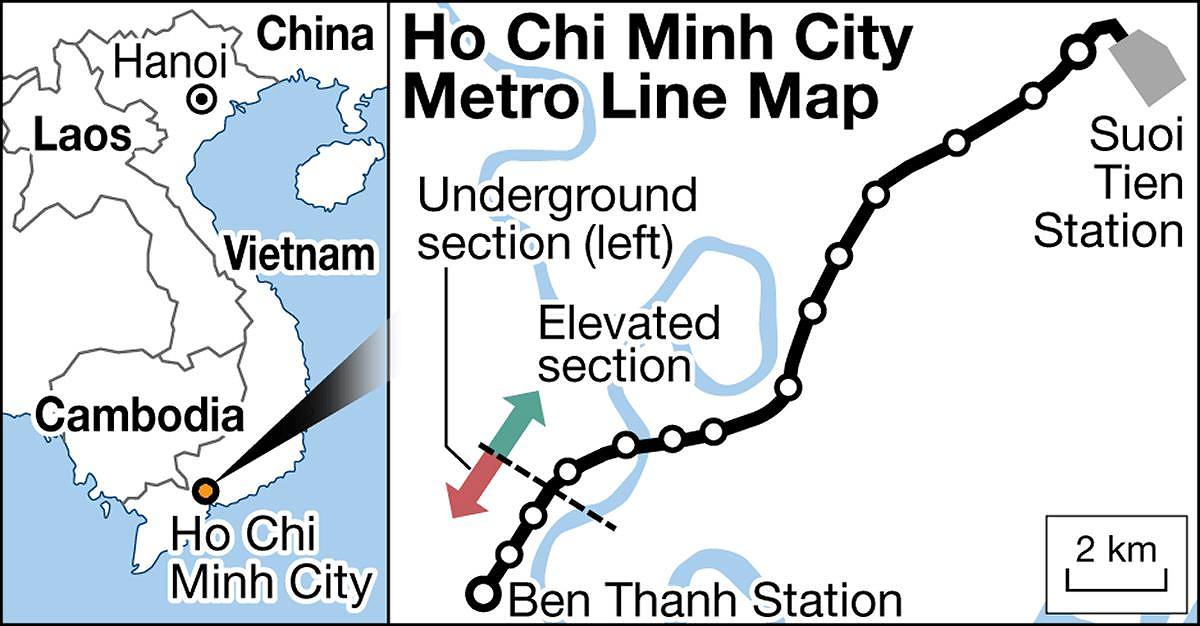Vietnam’s First Subway Opens in Ho Chi Minh City; Japanese Companies And Organizations Supported Development And Operation

Ho Chi Minh City citizens enjoy a ride on Metro Line 1 on its Dec. 22 opening day.

21:04 JST, January 5, 2025
HO CHI MINH CITY — Vietnam’s first subway, built with Japanese assistance, opened in Ho Chi Minh City, in the nation’s south, on Dec. 22. This project is part of the Vietnamese government’s efforts to build urban rail transit systems to ease traffic congestion and air pollution, which have been aggravated by urbanization.
With various countries taking part in Vietnam’s development race, Japan intends to promote the establishment of a safe and punctual railway system and to focus on training railway personnel.
The city’s Metro Line 1, which includes the first subway line, is 19.7 kilometers long and connects 14 stations, from Ben Thanh Station in the city center to Suoi Tien Station in the suburbs. The first 2.6 kilometers, starting from Ben Thanh Station, are underground.
About 500 people attended the opening ceremony held at Ben Thanh Station on the morning of Dec. 22. The subway was then opened to the public, and many citizens enjoyed the 30-minute ride to the terminal station.
In Vietnam, traffic congestion and air pollution in urban areas are becoming increasingly severe. The construction of urban railways is one step toward solving these problems.
The Japan International Cooperation Agency (JICA) has been providing assistance for the Ho Chi Minh City project from the survey stage. Major Japanese companies accepted orders for construction and system installation.
Japan has highly developed railway expertise to offer, such as environmental measures to reduce noise and vibration, in addition to supporting punctual operation and safety.
In Hanoi, two elevated rail transit lines supported by France and China are already in operation.
As competition between nations over Vietnamese railway business is expanding, Japan is also selling its accumulated knowhow in railway personnel training.
JICA began to support railway personnel education in Vietnam in 2022.
From November to December, 10 people from Vietnam, including railway school teachers and officials of the national railway, visited Japan and toured several facilities, including the East Japan Railway Co.’s Omiya rolling stock center in Saitama.
Hoang Huy Thuong, 49, a railway school teacher who formulated an educational program for Metro Line 1 employees, said enthusiastically, “I want to use what I learned [from the tour] to improve the educational program.”
However, the costs of the subway project ballooned due to frequent delays in the construction schedule.
When the JICA signed a yen loan contract with the Vietnamese government in March 2007, the initial plan was to start operation in January 2015, with a total project cost of about ¥126.6 billion. However, the construction period was extended due to the slowness of administrative procedures and the COVID-19 pandemic. The total project cost had increased to about ¥212 billion as of December 2023.
Under these circumstances, Hitachi, Ltd. filed a request for arbitration with the Vietnam International Arbitration Centre in April 2023.
According to a local newspaper, Hitachi is demanding the city pay them 4 trillion dong (about ¥24 billion), claiming that delays in construction increased their costs.
A government official familiar with the project pointed out, “Approval processes in Vietnam are very slow. Cumbersome procedures have become a drag on the project.”
Top Articles in World
-

Israeli Ambassador to Japan Speaks about Japan’s Role in the Reconstruction of Gaza
-

Videos Plagiarized, Reposted with False Subtitles Claiming ‘Ryukyu Belongs to China’; Anti-China False Information Also Posted in Japan
-

North Korea Possibly Launches Ballistic Missile
-

Chinese Embassy in Japan Reiterates Call for Chinese People to Refrain from Traveling to Japan; Call Comes in Wake of ¥400 Mil. Robbery
-

Russia: Visa Required for Visiting Graves in Northern Territories, Lifting of Sanctions Also Necessary
JN ACCESS RANKING
-

Japan PM Takaichi’s Cabinet Resigns en Masse
-

Japan Institute to Use Domestic Commercial Optical Lattice Clock to Set Japan Standard Time
-

Israeli Ambassador to Japan Speaks about Japan’s Role in the Reconstruction of Gaza
-

Man Infected with Measles Reportedly Dined at Restaurant in Tokyo Station
-

Videos Plagiarized, Reposted with False Subtitles Claiming ‘Ryukyu Belongs to China’; Anti-China False Information Also Posted in Japan

























